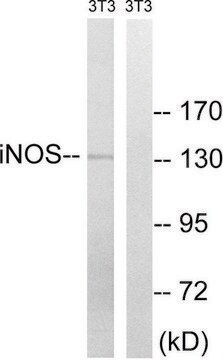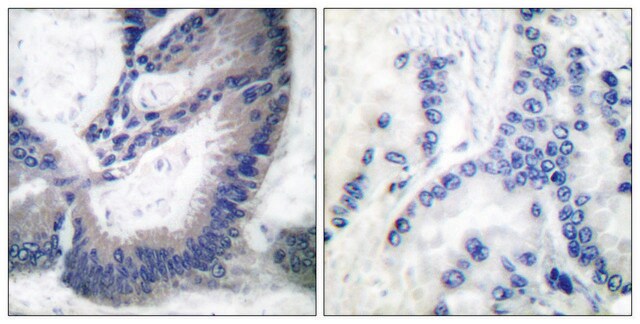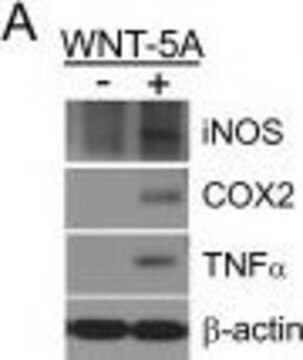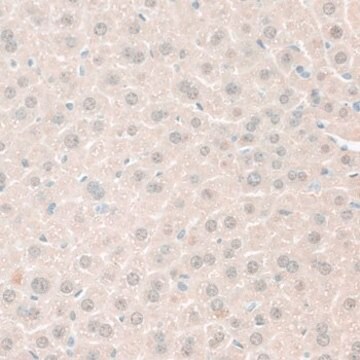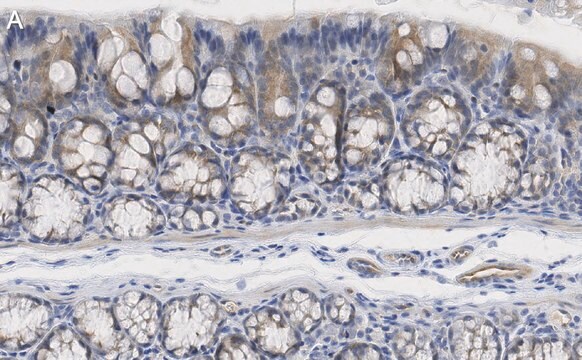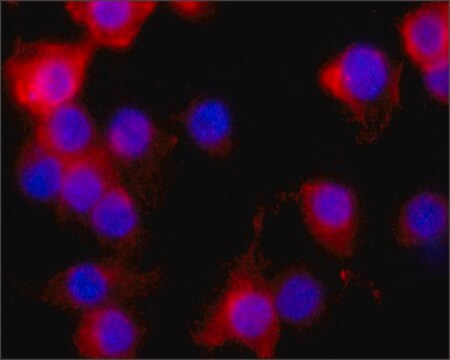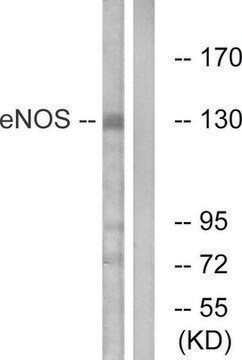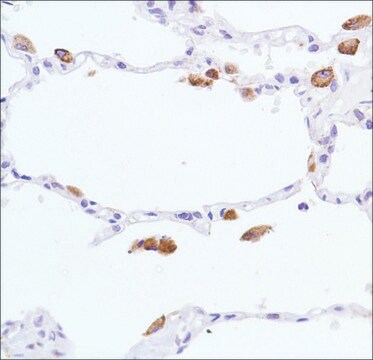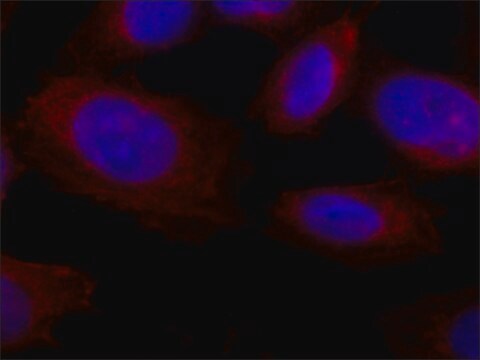SAB4200766
Anti-Nitric Oxide Synthase, Inducible antibody, Mouse monoclonal
clone NOS-IN, purified from hybridoma cell culture
别名:
Anti-Hepatocyte NOS (HEP-NOS), Anti-Inducible NOS (iNOS), Anti-NOS type II, Anti-Peptidyl-cysteine S-nitrosylase NOS2
登录查看公司和协议定价
所有图片(4)
About This Item
分類程式碼代碼:
12352203
NACRES:
NA.41
推荐产品
生物源
mouse
品質等級
抗體表格
purified from hybridoma cell culture
抗體產品種類
primary antibodies
無性繁殖
NOS-IN, monoclonal
形狀
buffered aqueous solution
分子量
~130 kDa
物種活性
human, mouse, rat, plant
濃度
~1.0 mg/mL
技術
flow cytometry: suitable
immunoblotting: 2-4 μg/mL using mouse macrophage RAW 264.7 cell line activated with lipopolysaccharide (LPS) and interferon-γ
immunohistochemistry: 10-20 μg/mL using heat-retrieved formalin-fixed, paraffin-embedded human pancreas sections
同型
IgG1
UniProt登錄號
運輸包裝
dry ice
儲存溫度
−20°C
目標翻譯後修改
unmodified
基因資訊
mouse ... Nos2(18126)
一般說明
Anti-Nitric Oxide Synthase, Inducible antibody, Mouse monoclonal (mouse IgG1 isotype) is derived from the NOS-IN hybridoma, produced by the fusion of mouse myeloma cells and splenocytes from BALB/c mouse. Inducible-type nitric oxide synthase (NOS) of mouse macrophage origin (iNOS) or macrophage NOS (mNOS) is a type II NOS (NOS2). It is a Ca2+-independent protein, expressed in activated macrophages and some glial cells after stimulation. NOS2 is also present in several other cell types including hepatocytes, chondrocytes, endothelial cells and fibroblasts. The iNOS gene is mapped to human chromosome 17q11.2. iNOS is a dimeric flavoprotein with a heme group. It comprises the C-terminal reductase domain and an N-terminal oxygenase domain.
特異性
Anti-Nitric Oxide Synthase, Inducible antibody, Mouse monoclonal reacts specifically with inducible-type nitric oxide synthase (iNOS, also termed macNOS and mNOS). It does not react with NOS derived from brain (bNOS) or with endothelial-type NOS (eNOS). The antibody recognizes iNOS from human, mouse, rat and plant origin.
免疫原
synthetic peptide corresponding to the C terminal region of nitric oxide synthase (NOS) of mouse macrophage origin (iNOS, also termed macNOS), conjugated to KLH
應用
Anti-Nitric Oxide Synthase, Inducible antibody, Mouse monoclonal may be used:
- immunoblotting
- immunofluorescence
- immunohistochemistry
- fluorescence-activated cell sorting (FACS)
生化/生理作用
Inducible nitric oxide synthase (iNOS) or NOS2 catalyzes the oxidation of L-arginine to L-citrulline and nitric oxide (NO) via an OH-L-arginine intermediate in the presence of reduced nicotinamide adenine dinucleotide phosphate (NADPH) and oxygen. Elevated levels of iNOS is observed in asthma. A high level of iNOS leads to an increase in NO production which may contribute to cell death and tissue damage. It is also implicated in the pathophysiology of septic shock. Single nucleotide polymorphism in the iNOS gene is indicative of high risk for B and T-cell non-Hodgkin lymphoma. iNOS also elicits macrophage bactericidal functionality.
外觀
Solution in 0.01 M phosphate buffered saline, pH 7.4, containing 15 mM sodium azide.
儲存和穩定性
For continuous use, store at 2–8 °C for up to one month. For extended storage, freeze in working aliquots. Repeated freezing and thawing is not recommended. If slight turbidity occurs upon prolonged storage, clarify the solution by centrifugation before use. Working dilution samples should be discarded if not used within 12 hours.
免責聲明
Unless otherwise stated in our catalog, our products are intended for research use only and are not to be used for any other purpose, which includes but is not limited to, unauthorized commercial uses, in vitro diagnostic uses, ex vivo or in vivo therapeutic uses or any type of consumption or application to humans or animals.
未找到合适的产品?
试试我们的产品选型工具.
儲存類別代碼
10 - Combustible liquids
閃點(°F)
Not applicable
閃點(°C)
Not applicable
Krystyna Boczoń et al.
Folia histochemica et cytobiologica, 42(4), 209-213 (2005-02-12)
The aim of this study was to demonstrate iNOS mRNA expression in muscular phase of experimental trichinellosis and to localize iNOS protein in T. spiralis-infected muscles using specific anti-iNOS monoclonal antibodies. The expression of iNOS mRNA in skeletal muscles from
Christian Bogdan
Trends in immunology, 36(3), 161-178 (2015-02-18)
Thirty years after the discovery of its production by activated macrophages, our appreciation of the diverse roles of nitric oxide (NO) continues to grow. Recent findings have not only expanded our understanding of the mechanisms controlling the expression of NO
Nitric oxide. No endothelial NO.
S H Snyder
Nature, 377(6546), 196-197 (1995-09-21)
O Bagasra et al.
Proceedings of the National Academy of Sciences of the United States of America, 92(26), 12041-12045 (1995-12-19)
Nitric oxide (NO) has been implicated as a pathogenic mediator in a variety of central nervous system (CNS) disease states, including the animal model of multiple sclerosis (MS) and experimental allergic encephalomyelitis. We have examined post-mortem brain tissues collected from
iNOS (NOS2) at a glance
Lowenstein CJ and Padalko E
Journal of Cell Science, 117(14), 2865-2867 (2004)
我们的科学家团队拥有各种研究领域经验,包括生命科学、材料科学、化学合成、色谱、分析及许多其他领域.
联系技术服务部门